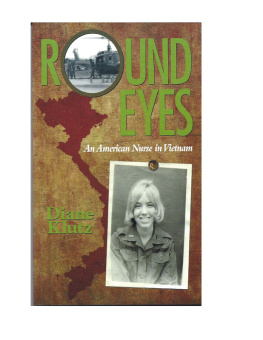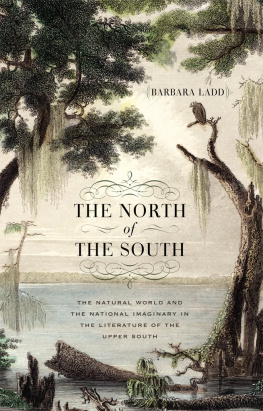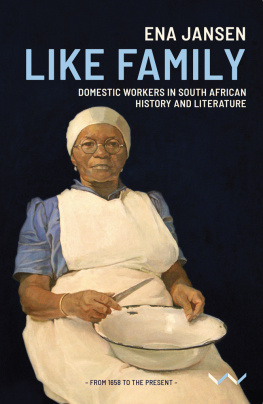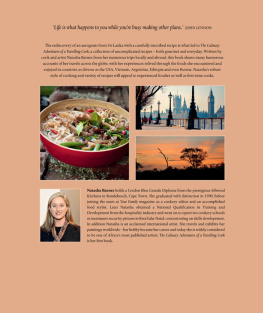Published by Louisiana State University Press
Copyright 2008 by Louisiana State University Press
All rights reserved
Manufactured in the United States of America
First printing
Designer: Laura Roubique Gleason
Typeface: Whitman
Printer and binder: Thomson-Shore, Inc.
LIBRARY OF CONGRESS CATALOGING-IN-PUBLICATION DATA
Barnes, L. Diane.
Artisan workers in the Upper South : Petersburg, Virginia, 18201865 / L. Diane Barnes.
p. cm.
Includes bibliographical references and index.
ISBN 978-0-8071-3313-2 (cloth : alk. paper) 1. Skilled laborVirginiaPetersburgHistory19th century. I. Title.
HD8085.P48B37 2008
331.7'94dc22
2007035914
The paper in this book meets the guidelines for permanence and durability of the Committee on Production Guidelines for Book Longevity of the Council on Library Resources.

Acknowledgments
Writing and researching a book is a collective enterprise. Although only one name appears on the title page of this one, it could not have materialized without a tremendous amount of help from a variety of individuals and institutions. The research phase of this project coincided with the opening of the new and modern facility of the Library of Virginia in Richmond in 1997. This means that I have no stories of researching in the heat of summer with no air conditioning or in the winter with cold seeping around the window panes of the old building on Capitol Street. Instead, my memories are of a highly modernized library and an excellent staff of archivists and librarians. Brent Tarter stands out among those at the Library of Virginia to whom I owe a special debt. Brents outstanding knowledge of Virginia history helped guide me in the early phases of this project, and his hospitable nature made me feel welcome at the Library and in Richmond. Others at the Library also aided my entry into Virginia history circles. Jim Watkinson shared his research on the Petersburg Benevolent Mechanic Association and pointed me in the right direction on a number of occasions. I owe a special thank you to Gregg Kimball and Sara Bearss for their assistance and camaraderie.
I also ran up a few debts across town at the Virginia Historical Society, where Frances Pollard and the library staff offered professional and cordial assistance with my research. I was very fortunate to conduct a significant part of my research in the Historical Societys world-class facility, where the most frequent concern of the librarians is whether the materials are being brought out fast enough. Two Mellon Fellowships provided by the Virginia Historical Society gave me three weeks of research that would not have been possible otherwise. I also owe a lot to Nelson Lankford, who solicited and provided an outlet for the first of my research on Petersburg artisans in the Virginia Magazine of History and Biography.
This project began as my dissertation at West Virginia University (WVU), where I was the beneficiary of an outstanding education. There I was lucky enough to have, not one, but two important mentors. Jack McKivigan guided the early stages of my research, beginning as a graduate research paper. He taught me how to think like a historian and how to be a workaholic. He also coaxed me into the world of documentary editing, and my work for the Frederick Douglass Papers provided a badly needed break from microfilm research. When Ken Fones-Wolf later became my dissertation director, the project matured under his expertise in labor history, and he taught me to remain calm in all circumstances. My historical skills grew under his guidance and I continue to value our friendship. I also owe much to Elizabeth Fones-Wolf, Ron Lewis, and Mary Lou Lustig for their able guidance during this projects development. On the administrative front, Nancy McGreevy helped me to secure two travel grants from the provosts office at WVU, allowing me to spend part of two summers in Richmond. At the WVU library, my biggest debt falls to Rhonda Donaldson, who always went out her way to make sure I had the resources I needed. During my time at WVU, my research was also supported by a Phi Alpha Theta doctoral fellowship.
The final stages of this book took shape after I began my tenure at Youngstown State University (YSU). There my history department colleagues provided encouragement to see the project through to completion. Martha Pallante, who turned out to be a good friend as well as an outstanding department chair, has offered invaluable words of support and advice. Donna DeBlasios engaging sense of humor and camaraderie provided numerous needed diversions. Thanks also to Martin Berger for a close read in the final stage of the project. The YSU College of Graduate Studies and Research, headed by Peter Kasvinsky, provided leave in the form of a Research Professorship and financial assistance in support of my research and writing. The librarians and interlibrary loan staff at YSUs Maag Library, and most especially Ellen Banks, were very accommodating to some rather unusual loan requests. In the final editing stages of this project, my graduate research assistants, Heidi Giusto and Jarret Ruminski, each undertook a close reading of the manuscript. Maureen Wilson and the staff in Media and Academic Computing ably adapted and created maps that greatly enhance the book.
My parents, Tom and Glenda Mowrey, always encouraged my academic pursuits with both kind words and their checkbook, even when they must have privately wondered if I was planning to stay in college forever. Over the past ten years, my husband, Ben Barnes, has spent much time in the world of Petersburg artisans. He read and listened to various drafts of the manuscript, and once gave up a week of his life to act as an able-bodied research assistant. He also endured vacations in the Blandford churchyard and the Petersburg Public Library. I cannot begin to express the debt of faith and gratitude that I owe him for putting up with an historians obsession with the past.
As often happens as part of a long-term research project, an earlier version of chapter 2 was published in 1999 as Southern Artisans, Organization, and the Rise of a Market Economy in Antebellum Petersburg, in volume 107 of the Virginia Magazine of History and Biography. Parts of the manuscript also appear as a chapter titled Fraternity and Masculine Identity: The Search for Respectability among White and Black Artisans in Petersburg, Virginia in Southern Manhood: Perspectives on Masculinity in the Old South, edited by Craig Thompson Friend and Lorri Glover and published by the University of Georgia Press in 2004. I offer thanks to both the Virginia Historical Society and the University of Georgia Press for permission to reprint this material. I would also like to thank the two reviewers who offered valuable suggestions for revisions to the manuscript. I owe a special debt to Frank Towers of the University of Calgary, whose incredible review made this book a better one. Finally, my appreciation goes to the editorial staff at Louisiana State University Press, and especially to Rand Dotson for seeing the projects merit.
ARTISAN
WORKERS
IN THE
UPPER SOUTH













